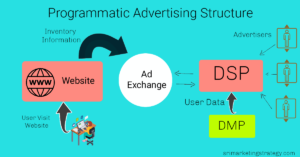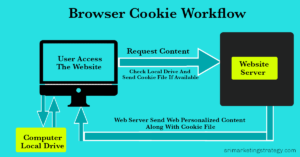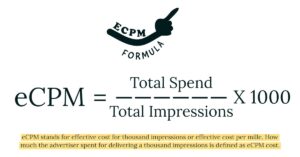Digital Marketing Interview Questions: When you attend an interview for a digital marketing job, you must be ready to face the below kind of scenario based interview questions. These questions are common and a little bit tricky to answer but if you do calculations before answering these kinds of questions then it will be easy.
In this blog post, I shared some interview questions based on CPM, CTR, and VCR. Also, guide you to answer those questions very quickly and correctly.
Question 1: Here is the campaign performance table. As per this data, which campaign has performed well from the advertiser’s point of view and why?
| Campaign Name | Impressions | Clicks | Spend | CTR |
| A | 250000 | 650 | $ 1,500.00 | 0.26% |
| B | 150000 | 600 | $ 2,000.00 | 0.40% |
| C | 200000 | 350 | $ 2,500.00 | 0.18% |
| D | 275000 | 750 | $ 2,000.00 | 0.27% |
Answer :
Here, the performance indicator is CTR and campaign D has the highest CTR compared with the other three campaigns. So, campaign D has performed well than other campaigns. [Do to need CTR Calculator?]
Is this your answer?
This is not correct.
From the advertiser’s perspective, which campaign has acquired results at a low cost is considered the best performed campaign. So, you need to calculate the cost per result in order to find the best campaign.
The amount spent for each campaign is different and their eCPM is also different. So, we can’t use CTR to identify the best performed campaign. We need to calculate the CPC for each campaign to identify the best campaign. As per the below table, campaign A has a CPC $2.31 which is lower than other campaigns. So, campaign A has performed well than other campaigns.
CTR% = Total Clicks/Total Impressions*100
CPC = Total Spent/Total Clicks
| Campaign Name | Impressions | Clicks | Spend | CTR | CPC |
| A | 250000 | 650 | $ 1,500.00 | 0.26% | $ 2.31 |
| B | 150000 | 600 | $ 2,000.00 | 0.40% | $ 3.33 |
| C | 200000 | 350 | $ 2,500.00 | 0.18% | $ 7.14 |
| D | 275000 | 750 | $ 2,000.00 | 0.27% | $ 2.67 |
Question 2 : Which model you will prefer to run CPC or CPM?
It depends upon the brand’s main objective.
For example,
if the brand’s primary objective is to increase website traffic then the CPC model is very much suitable. Because the brand only needs to pay whenever the user clicks the ad.
If the brand’s primary objective is to increase brand awareness then the CPM model is very much suitable. Because the brand pays for every 1000 impressions.
Question 3: Calculate CPC for a campaign that served 175000 impressions, 150 clicks, and $5 CPM.
Answer :
CPC = Total Cost/Total Clicks
Now, we do not have the total cost in hand. So, we need to calculate the total cost.
Total Cost = Total Impressions/1000*5
Total Cost = 175000/1000*5
Total Cost = $875
Now we can calculate the CPC,
CPC = 875/150
CPC = $5.84
Question 4 : Campaign running with CPC $0.7 and having a CTR of 0.3%. Calculate the CPM.
Answer: Please remember this formula to calculate the CPM. With two values you can find the third value using this formula.
CPM = (CPC / CTR) x 1000
CPM = (0.7 / 0.003) x 1000
CPM = 233.33 x 1000
CPM = $233.33
Therefore, the CPM for this campaign would be $233.33.
Question 5 : Campaign running with CTR 0.30% and having a CPM $5. Calculate the CPC?
Answer :
Below is the formula to calculate CPC,
CPC = (CPM / 1000) / CTR
CPC = (5 / 1000) / 0.003
CPC = 0.005 / 0.003
CPC = $1.67
Question 6: A video ad campaign received 50,000 impressions and had a video completion rate of 80%. If the campaign spent $10,000, what was the cost per completed view?
Answer :
Here, we need to calculate the cost per completed view [CPCV].
The CPCV formula is below,
CPCV = Total Cost/Completed Views
Here, we have the total cost value: $10,000 but we do not have the completed views. So, we do a small calculation to calculate the Completed Views.
Completed View = Total Impressions * Video Completion Rate
Completed View = 50,000 * 80%
Completed View = 40,000
Now we can calculate the CPCV cost,
CPCV = Total Cost/Completed Views
CPCV = 10,000/40,000
CPCV = $0.25
So, the CPCV cost for the above campaign is $0.25.
Question 7: A video campaign served 100000 impressions and received 150 clicks. Also, this campaign has received 57000 completed views. What was the Video Completion Rate for this campaign?
Answer: The video completion rate formula is given below,
VCR % = Completed Views / Total Impressions * 100
VCR % = 57000 / 100000 * 100
VCR % = 57%
Question 8 : Advertiser spent $500 on a video campaign. That campaign has served 70,000 completed views and the eCPM cost is $5. How many impressions this campaign has served? What is the VCR percentage?
Answer :
We have the following information,
Total Cost = $500
Completed Views = 70,000
eCPM = $5
First, we need to calculate the Impressions,
Total Impressions = Total Spent / eCPM * 1000
Total Impressions = 500/5 * 1000
Total Impressions = 100000
Now, we need to calculate the VCR.
VCR = Total Completed Views / Total Impressions * 100
VCR = 70000/100000 * 100
VCR = 70%
Question 9 : One video ad campaign served 200,000 impressions and had a video completion rate of 50%. If the cost per thousand impressions (CPM) was $10, what was the total spend for the campaign?
Answer :
We have the following information,
Total Impressions = 200,000
Completion Rate = 50%
CPM = $10
Total Cost = (Total Impressions * CPM) / 1000
Total Cost = (200000 * 10) / 100
Total Cost = $2000
Question 10: One video campaign served 100000 impressions and spent $500. How many completed views this campaign received if the VCR was 67%?
Answer :
The basic formula for calculating VCR is below,
VCR % = Completed Views / Total Impressions * 100
From this formula, we can get the formula for calculating Completed Views.
Completed Views = Total Impressions * VCR %
Completed Views = 100000 * 67%
Completed Views = 67000
I hope that the above interview questions and answers are very much helpful for you to prepare for interviews.
Please share your thoughts in the comment section. Also, please add the interview questions in the comment if you faced anything.



